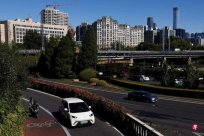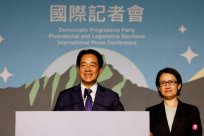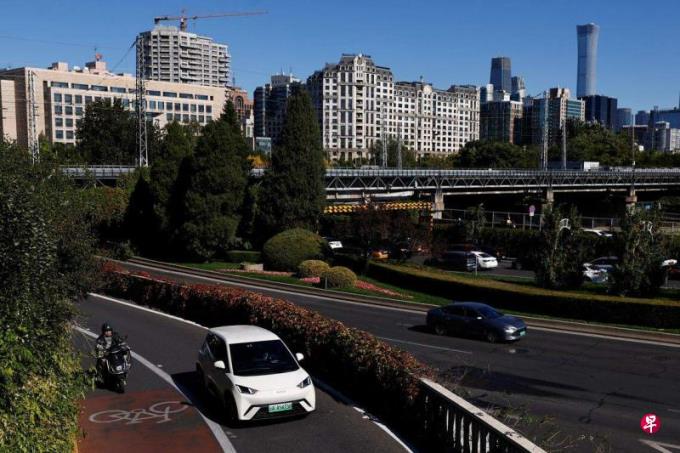
With the slowdown in domestic sales in China's new energy vehicles, more and more auto companies have accelerated overseas market layout as new business growth points.However, in Europe and the United States' trade protectionism in the automotive industry in recent years, officials have adopted a series of measures to curb the development of China's electric vehicle industry.How does this affect the pace of China's new energy vehicles?Will the deployment of Chinese car companies in Southeast Asia will be accelerated?
Hungarian Prime Minister Olban did not return directly to the Beijing "Belt and Road" Summit Forum in mid -October last year. Instead, he visited Shenzhen to visit the electric vehicle giant BYD to learn about the development of new energy vehicles and batteries.
The two parties did not sign a cooperation agreement at the time, but Olban said that Hungary welcomed Chinese companies, and the two sides were "willing to cooperate."
In less than three months, BYD announced the establishment of the first European vehicle manufacturing base in Hungary last December to show BYD's ambition to expand the European market territory.
In addition to BYD, Chinese electric vehicle -related companies such as Ningde Times, Ningde, and Yimei Energy, the world's largest battery manufacturers in the world have also announced the establishment of factories in Hungary, which have been friendly to China in the past year.Some netizens ridiculed that Chinese electric car companies were "either built in Hungary or on the way to the construction of a factory in Hungary."
Hungary is located in the hinterland of Europe, which is the transit and distribution center for Asian countries to enter the European market.According to the European Union Agreement, the trade between the EU member states follows the zero -value -added tax and tariff rules, and the cars produced by Chinese car companies in Hungarian can avoid import tariffs.
The data of the French Iorovicov Counseling shows that among European new electric vehicles, Chinese brands have reached 8%, higher than 6%in 2022 and 4%in 2021.
Chinese new energy vehicles, which are mainly electric vehicles, are fierce. European auto manufacturers have accelerated the transformation of factories and improved electric vehicle production.
However, because China's intergenerational advantages in the core supply chain, large -scale production, product and technology development of electric vehicles, it is not easy for European car companies to overtake in a curve in a short time.
In order to win more time for European car companies, the European Union has adopted a series of control measures to increase the threshold for Chinese electric vehicles to enter Europe.The new battery law adopted by the EU Council last July proposed to use carbon footprints as the mandatory standard for products.Under the New Deal, China's power battery production enterprises have to report the carbon footprint of the power battery produced by the EU according to the EU's components.
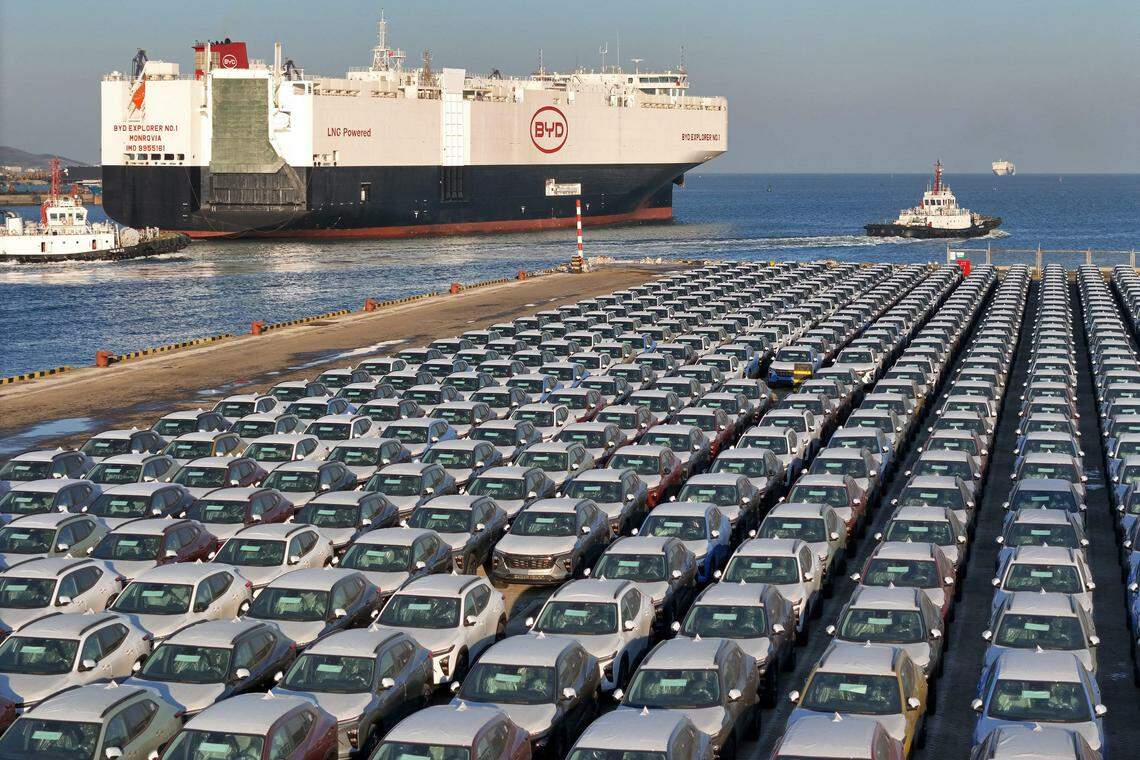
Wu Dan, assistant researcher at the Qianhai International Affairs Research Institute of the Chinese University of Hong Kong (Shenzhen), pointed out in an interview with Lianhe Morning Post that China does not have a unified carbon footprint computing standard at present, and the new requirements of imported batteries will inevitably affect China entering the European market.Power battery products.
She said: "Western developed countries are constructing new rules for trade and investment based on the standards of environmental, social and governance (ESG), stricter foreign investment review, and through new regulations to achieve 'long -arm jurisdiction'."
At the same time, the European Union launched an anti -subsidy survey with Chinese electric vehicles, which was regarded by China as a political means targeting the country's electric vehicles.
The Chairman of the European Commission Feng Delin complained in September last year that the Chinese government has lowered the price of electric vehicles through huge state subsidies to reduce the price of Chinese cheap electric vehicles and pose a threat to the European electric vehicle industry.The European Commission has launched an anti -subsidy survey of Chinese electric vehicles, and it is expected that it will be announced this year.
Zhou Lingkun, the leader of Deloitte China Automobile Industry, pointed out in an interview that once the anti -subsidy investigation determines that the Chinese government has subsidies for new energy vehicle companies, and the damage to the EU related industries is caused, there is a causal relationship.A counter -subsidy tax will be levied.This will increase the cost of Chinese electric vehicle exports in Europe and reduce competitive advantages.
He said: "This may cause other countries to follow up, follow up similar investigations to Chinese products."
According to the data of the National Passenger Vehicle Market Information Joint Meeting of China, Europe is the largest destination for China's new energy vehicle exports, accounting for more than 39%in the first half of last year.
In response to the trade fortress set by the EU to Chinese car companies, the interviewed by Chinese car companies that they will actively cooperate and make corresponding adjustments to follow national regulations.
Luo Hao, assistant to the general manager of the BYD brand and the Public Relations Department, said in an interview that the company firmly embraced globalization, insisted on win -win cooperation, and developed products that meet the target market needs through cooperation with international enterprises.He said: "We will pay close attention to changes in domestic and foreign policies in order to adjust market strategies and operations in time."
Geely Holding Group, a Chinese car company headquartered in Zhejiang, also pointed out that the company will "respect free trade, advocate fair competition, strictly abide by laws and regulations around the world, and participate in market competition in accordance with laws and regulations."The company is currently in the six European countries, and its Permian brand was officially delivered in the Netherlands last December.
Chinese electric vehicle manufacturer, which is currently selling services in Germany, the Netherlands, Sweden, and Denmark, for the company, the company will provide relevant information based on official requirements and cooperate with its work.Chen Chen, the person in charge of the development of Weilai European business, said in an interview: "The current development of Weilai has not been affected."
Entering the United States face more severe challenges
Compared with the European market, Chinese auto manufacturers face more severe challenges when entering the US market.
After taking office in the United States, the former President Trump's policy of imposing a 25%tariff on China's imported vehicles was continued, and the reduction of inflation bills issued in August 2022 tightened the "buying American goods" policy to bring China to ChinaElectric vehicles, batteries and other parts and resources produced by the company are excluded from its supply chain.
In order to expand its influence in North America, Chinese car companies have accelerated the layout of Mexico in the past three years, making it an important bridgehead for China's new energy vehicles to enter North America.At least six Chinese car companies have considered building factories or in -depth cooperation with local agents in Mexico.
Some analysts pointed out that in addition to the huge potential of the local market, Chinese car companies choose to invest in Mexico because of its accumulation in the automotive industry and its advantages with the United States in geopolitics and free trade agreements.
According to the British Financial Times, Washington has expressed concerns about China's investment in new energy vehicles.The U.S. government is worried that Chinese automakers will be able to bypass the restrictions on the inflation method by making cars in ink and let more advanced and cheaper models flow into the US market.
The United States shows no intention to stop China's investment in Mexico, but US Finance Minister Yellen recently emphasized that Mexico "needs to properly apply trade rules."
The Ministry of Commerce of China responded that China -Mexico cooperation is a matter between two sovereign countries, and third parties have no right to intervene.
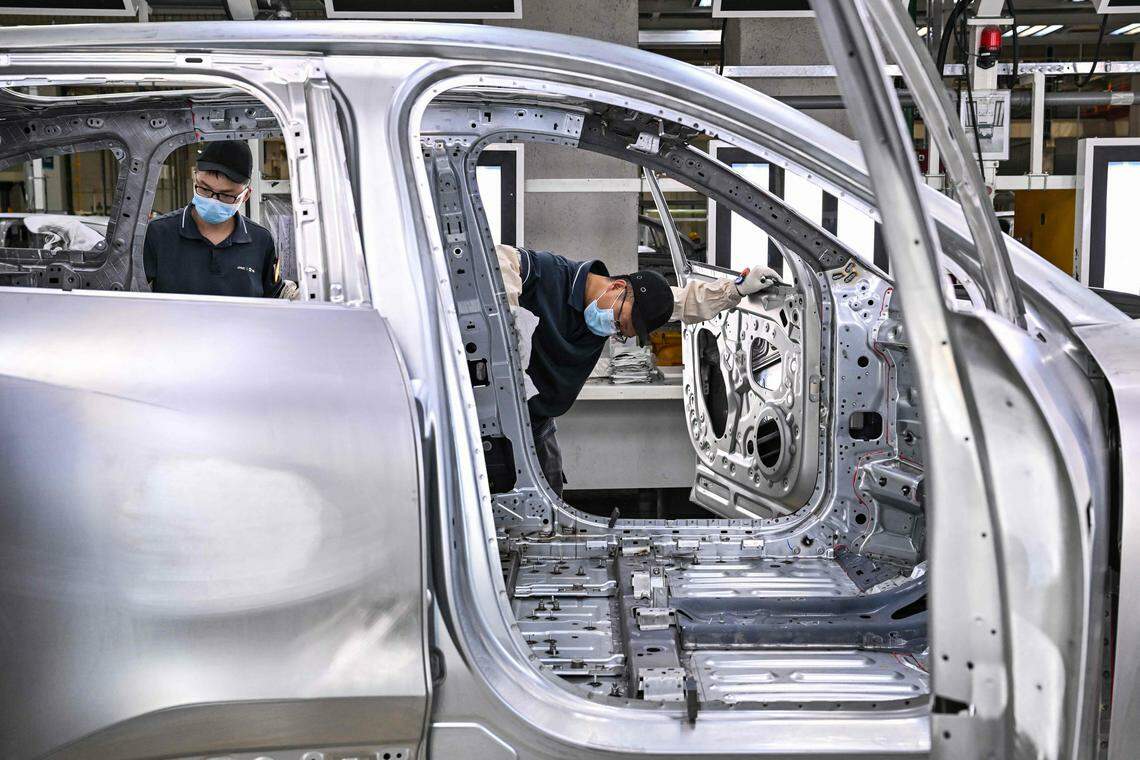
Although Chinese auto manufacturers enter the US market to face severe challenges, some experts believe that considering the huge price advantage of Chinese electric vehicles and the ability to fill the low -cost automobile market, it isSooner or later.
Dunne CEO Dunne Insights CEO Dunn for example, for example, the average price of new American new cars is about $ 48,000 (S $ 64,000).25%of tariffs, "they are still in a very favorable position."
The low level of electric vehicle penetration is the blue ocean market
Benefiting from the open business environment, China's new energy vehicle manufacturers accelerate the entry into Southeast Asian countries. This area has become the focus of overseas markets this year.
Data from the Federation of Federation showed that the export volume of Chinese cars fell significantly to Germany, France, Britain, Spain, and Belgium last November.It has been transferred from Europe to Southeast Asia.
Southeast Asia is the second largest market for Chinese new energy vehicle companies to go overseas after Europe.
According to a report by the market survey company Counterpoint last September, the sales of pure electric vehicles in Southeast Asia in the second quarter of last year increased by 894%.
Although electric vehicles accounted for 6%of the total sales of all new passenger cars in Southeast Asia, this was twice that of the previous quarter.In early 2022, this number was only 0.3%.
Zhou Lingkun, the leader of Deloitte China Automobile Industry, pointed out in an interview with Lianhe Zaobao that Chinese new energy vehicle companies actively develop the Southeast Asian market, mainly to see the huge local car consumption potential and the growth space of the new energy market.
Zhou Lingkun said: "Compared with China, Europe, the United States, etc., Southeast Asia's new energy vehicles have low penetration levels and are the blue ocean market. In the past two years, under the stimulus of government policy, local new energy vehicles have achieved breakthroughs in order of order."
Speed up the production line in Taiyinma Investment
TheCountpoint report states that Chinese vehicle manufacturers will become the biggest beneficiaries of Southeast Asia's electric vehicle demand in the short term. As the new generation of auto manufacturers begin to set up factories in Southeast Asia, Thailand will become hot areas.
Thailand is the largest automobile production country in Southeast Asia, with a complete industrial chain and huge domestic and foreign markets.In recent years, China's new energy vehicle companies have accelerated the construction of local production lines in Thailand to respond to the surge in regional demand.
Nickel is the key component of lithium ion batteries, and lithium ion batteries are the core of electric vehicles.With the booming development of the new energy vehicle industry, the importance of nickel has become increasingly prominent, which has also made Indonesia with the world's richest nickel reserves in the world become the place of investment among major car companies.
According to the Antara News Agency in Indonesia, the Indonesian government said in late December last year that four Chinese electric vehicle manufacturers were willing to put into production locally, including Wuling Automobile and BYD.
In July last year, Malaysia Prime Minister Anwar revealed that Geely Holding Group plans to invest $ 10 billion (S $ 13.3 billion) to make Perak Dandeak Malinth into the largest local car center.Geely responded to Lianhe Morning Post inquiring that the Malaysian market is Geely's strategic choice and is a bridgehead for opening the Southeast Asian market."Geely will actively embrace new opportunities for regional economic upgrades to increase investment in ASEAN (that is, Asian Gyeongan)."
Zhou Lingkun pointed out that the Southeast Asian market has a higher acceptance of Chinese capital and brand regardless of consumers or the government, which allows Chinese car companies to achieve market expansion faster. This opportunity can make up for the decline in the European market to a certain extent.
However, Zhou Lingkun emphasized that Japanese brands have long -term operation in Southeast Asia and have the dominant advantage in the field of fuel vehicles.After the popularization of Chinese electric vehicles in Southeast Asia, it will drive the local electric vehicle industry chain to accelerate and improve. In the future, more and more Japanese and Korean car companies will launch electric vehicle models locally, which will exacerbate the competition in the Southeast Asian electric vehicle market.
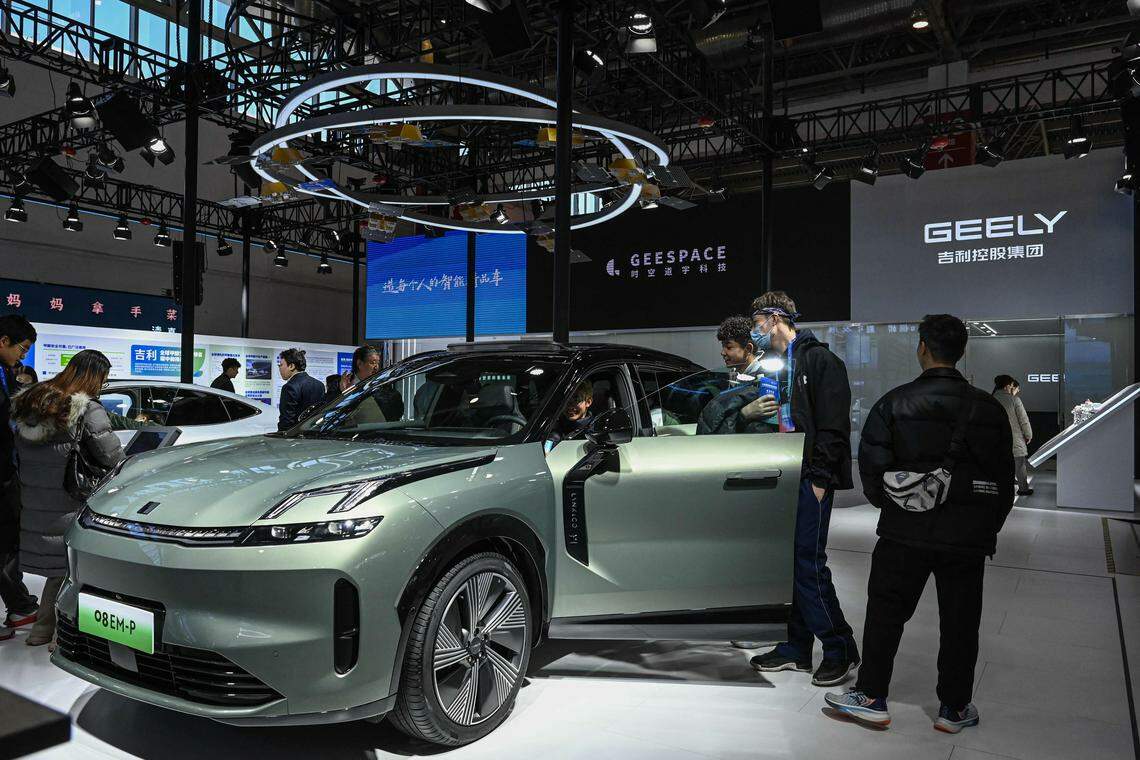
Experts: To lead the market, car companies must provide a localization plan
China Electric Vehicle has started well in the international market, but in individual markets, it still faces the challenge of low brand awareness and fierce market competition.Experts believe that Chinese car companies must strengthen cooperation with countries and provide localized solutions in order to gain market leadership.
Although Europe is one of the areas of the world's first use of electric vehicles, due to factors such as high prices, incomplete charging facilities, and insufficient confidence, the penetration rate of electric vehicles in Europe is still at a lower level, especially at low income at low income.Central Europe and Eastern European countries.
Chen Chen, the person in charge of the development of Weilai European business, pointed out in an interview with Lianhe Morning Post that Europe is the birthplace of the automotive industry. As a new company that enters the market, the company will inevitably face competition with traditional car brands."They have been founded for many years, and user brands have a higher loyalty; new brands have low awareness, and it is difficult to enter the market."
Chinese car companies Geely Holdings Group believes that the overall situation of the international market is more uncertain and variably. Compared with the auto brands in Europe, Japan, and South Korea, Chinese brands still face the unfair market competition and prejudice, such asHigh tariff barriers and regional free trade agreements have not yet covered the automotive industry.
In the face of these challenges, Geely said that it will adhere to the improvement of localized operations within the scope of compliance, strengthen the marketing role, and enhance brand influence.Do not just copy the domestic model, you must develop new products targeted
Luo Hao, Assistant General Manager of the BYD Brand and Public Relations Office, introduced in an interview that BYD's challenges in overseas markets include market environment, consumption environment, and cultural environment differences.He said that BYD will respect the rules of overseas markets, continue to strengthen collaborative relationships with local partners, and formulate precise market strategies and product strategies.
Chen Chen also agrees that high -quality products and technology are the "stalls" of the market, and Weilai will establish a complete business and service system through the differentiation of the brand to open up and integrate the localized operation ecosystem.
Zhou Lingkun, the leader of Deloitte China Automobile Industry, judged in an interview that with the Chinese car company's overseas model entering the next stage, car companies must make core changes in the product and production model.
He said that Chinese car companies cannot only stay to copy domestic products overseas, or make adaptive adjustments."In the long run, they must develop targeted development according to consumer needs and car environment."
At the level of manufacturing and supply chain, Zhou Lingkun believes that Chinese car companies must speed up to invest from traditional trade to green space, including acquiring local existing production capacity, strengthening cooperation in the same manufacturer, and establishing assembly factories.He said that this will help Chinese car companies to improve localized production level overseas.
For a long time, Chinese automobile companies have been mainly based on foundry models, and they have commissioned local dealers with full authority such as sales and after -sales service.Zhou Lingkun said that Chinese car companies can take more use of multi -models of distribution and direct sales to improve the control of brand image construction, sales processes, and service standards.

